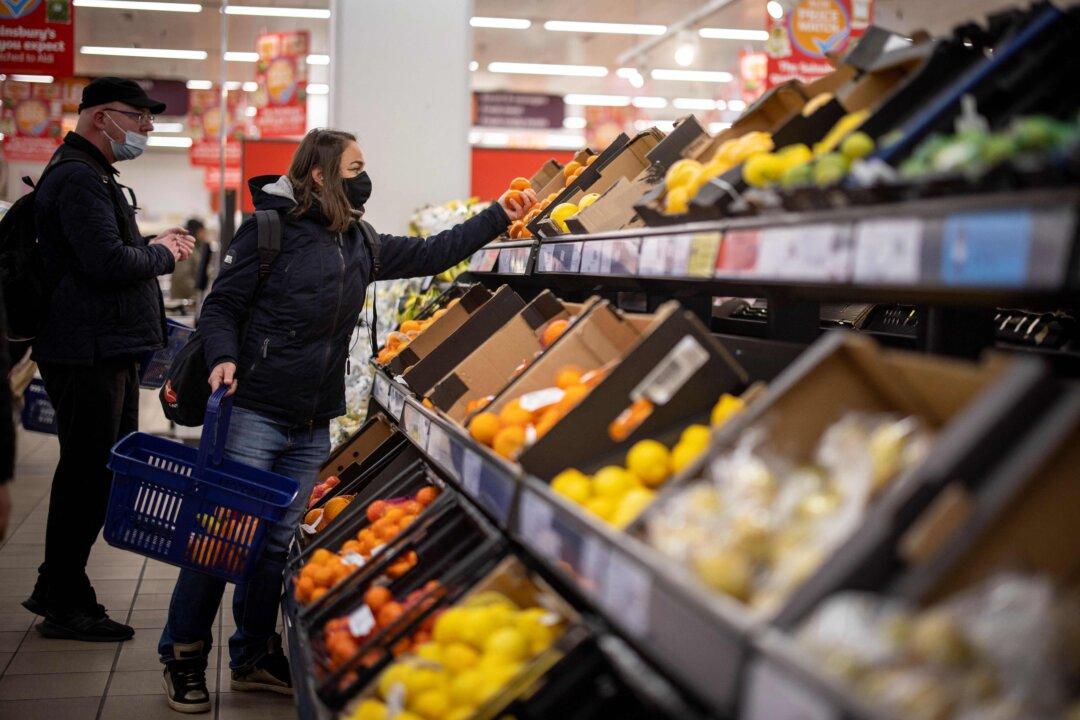There’s a new momentum among leaders of the Group of Seven (G-7) nations to cut tariffs on food, British Prime Minister Boris Johnson said on Wednesday, adding that U.S. President Joe Biden was planning to cut $178 billion (£146 billion) worth of tariffs.
It comes after Johnson vowed to “get people through” the “post-COVID, Ukraine-exacerbated inflationary pressures.”





